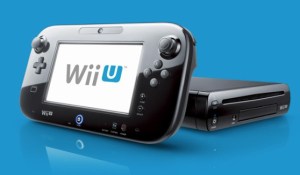Before I make predictions on the new year, I’ll take a look at how I did on my predictions last year, with letter grades on them. In a separate post, I’ll let fly the predictions for 2013. If you have ideas of your own, please leave them in the comments and take our poll at the end. After you get a look at this story, be sure to check out our 2013 predictions. Of the 12 predictions I made last year, I’m giving myself a letter grade of A on four of them, a B on 5, a C on one, a D on one, and an F on one. Here’s this year’s predictions.
Last year’s predictions
 1. Social and mobile gaming will get stronger. I predicted, “Now that Zynga and Nexon have both raised a billion dollars, they’ll be able to use that money to accelerate acquisitions and expand their positions in the fastest-growing parts of the video game business. The good thing is that social and mobile games are already popular, but they’re in their infancy. They have plenty of room to evolve and grow.”
1. Social and mobile gaming will get stronger. I predicted, “Now that Zynga and Nexon have both raised a billion dollars, they’ll be able to use that money to accelerate acquisitions and expand their positions in the fastest-growing parts of the video game business. The good thing is that social and mobile games are already popular, but they’re in their infancy. They have plenty of room to evolve and grow.”
Letter grade: B
Mobile games took off as the number of smartphone and tablet users soared. But social games stalled as Facebook’s growth slowed and Zynga failed to execute on its strategy, disappointing Wall Street.
2. Console games become the Red Queen. “Like the Red Queen in Through the Looking Glass, console and PC games will continue to run just to stay where they are. With sales flat compared to 2009 and 2008, the console game sector appears to be stuck.”
I got this one wrong because the retail game industry led by the consoles saw double-digit declines in the U.S. for just about every month in 2012. December sales haven’t come in yet, but I don’t expect it to have a lot of great news for publishers. Blame the slowdown on the aging consoles and the growth of digital games.
Letter grade: B
3. World of Warcraft will continue its steady decline. “The question is whether Blizzard will be able to execute an orderly retreat. At some point, the company will launch Titan, its next massively multiplayer online game. But it sure doesn’t look like that game will arrive in 2012.”
World of Warcraft has been losing players, falling from a peak of 12 million at the beginning of 2011 to 10 million in the most recent quarter ended Sept. 30. The losses haven’t been drastic, with the 10 million figure down only 200,000 from the beginning of the year. WoW lost a million players in the second quarter, but in the third quarter, WoW regained nearly a million subscribers thanks to the launch of its Mists of Pandaria expansion. Will the number go back down again in the fourth quarter? If it does, I’ll get an A on this prediction.
4. Cloud gaming gains ground. “In 2010, OnLive launched its cloud-based game streaming service. But its impact hasn’t really been measurable yet. OnLive hasn’t released user numbers, retailers such as GameStop haven’t gone out of business, and publishers are still counting on retail sales for a big part of their revenues. In 2011, cloud gaming continued to expand, growing to the United Kingdom and spreading to mobile devices. As more websites embed cloud-gaming demos for free, users will start to see the benefits of the games-on-demand services. We can expect to see more game streaming in 2012, since Gaikai has teamed up with Wal-Mart and GameStop is prepping its own service. OnLive has a couple of hundred games available, making it a force to be reckoned with among those distributing games in digital form. If more titles and more exclusives land in the lap of OnLive, the gamers will follow. But the question is, will the growth be gradual, or will it pick up momentum in 2012?”
Cloud gaming isn’t dead, but it suffered its worst setback as OnLive (led by Steve Perlman, pictured right) hit the wall and filed for a bankruptcy alternative. The company failed to raise funding and changed ownership.
Letter grade: F
5. Tablets and smartphones will continue to steal gamers from dedicated handheld gaming devices. “The competition between Android and Apple will accelerate the rate of innovation in mobile, and that will grind up the dedicated gaming devices. Kids in particular will drive this transition as they move from the iPod Touch to iPhones to iPads, possibly skipping handhelds altogether. The PS Vita has plenty of cool new games, but it’s hard to beat the free-to-play or 99-cent prices on iOS and Android.”
Even as console game sales fell at double-digit rates during 2012, the growth of smartphones and tablets paved the way for big gains in mobile game downloads.
Letter grade: A
6. The platforms will multiply. In every part of the business where there isn’t enough competition, new platforms will emerge to provide it. Google+, for instance, will rise as a gaming platform to compete with Facebook, which has pretty much wiped out a lot of its competition. In mobile, Microsoft’s Windows Phone will mount a bigger challenge to Android and iOS. And within existing platforms, such as Android, we’ll see new kinds of gaming devices emerge. And where these new platforms arise, they will prominently feature games because games will help differentiate these platforms and show off what they can do.
This year saw the launch of the Wii U, the expansion of the Amazon Kindle Fire, new smartphones, the iPad Mini, and the announcement of the Ouya Android-based game console.
Letter grade: A
 7. Nintendo launches a console in the fall of 2012, but Sony and Microsoft wait until 2013. “Nintendo’s new Wii U console is expected to debut in 2012 with its tablet-like controller. But I don’t expect it to set the world on fire the way the Wii did starting in 2006. That will give Microsoft and Sony some breathing room to create high-end machines that can run circles around the Wii U. By waiting a year, the heavy-duty console makers can stretch out the console cycle by one more year and then make more money on the current generation. They will also be able to launch advanced consoles with one more year of the cost learning curve under their belts. Having said that, I would bet that it is more than likely that Sony and Microsoft will try to dampen the enthusiasm for the Wii U by announcing new systems in 2012 that won’t ship until 2013. That’s the familiar vaporware tactic that helped the PlayStation 2 defeat Sega’s Dreamcast in the good old days.”
7. Nintendo launches a console in the fall of 2012, but Sony and Microsoft wait until 2013. “Nintendo’s new Wii U console is expected to debut in 2012 with its tablet-like controller. But I don’t expect it to set the world on fire the way the Wii did starting in 2006. That will give Microsoft and Sony some breathing room to create high-end machines that can run circles around the Wii U. By waiting a year, the heavy-duty console makers can stretch out the console cycle by one more year and then make more money on the current generation. They will also be able to launch advanced consoles with one more year of the cost learning curve under their belts. Having said that, I would bet that it is more than likely that Sony and Microsoft will try to dampen the enthusiasm for the Wii U by announcing new systems in 2012 that won’t ship until 2013. That’s the familiar vaporware tactic that helped the PlayStation 2 defeat Sega’s Dreamcast in the good old days.”
This was right on the mark on the timing of the consoles as the console makers didn’t pull any big surprises. But Microsoft and Sony didn’t announce anything.
Letter grade: B
8. Location-aware mobile gaming will gather momentum. “Will Wright, the gaming legend who created SimCity, is exploring location-based entertainment because it can lead to what he calls “personal gaming,” where a game can be more easily customized to a person’s tastes because it makes use of data that it knows about that person. By tapping into location information, game creators can make their titles more and more relevant to consumers. To date, location-based games have had density problems, where not enough players are playing in one location. But it’s possible to design games that get around this issue, and developers will be able to keep you entertained based on where you are.”
Unfortunately, Wright got into a lawsuit with a co-founder and spent much of the year dealing with the litigation. The lawsuit was finally settled, but personal gaming will have to wait. Meanwhile, Red Robot Labs scored big with its Life Is Crime location game in 2012.
Letter grade: C
9. Family mobile data plans increase game consumption. “I borrowed this prediction from Exent, which forecasted that numerous mobile carriers will lower their data fees per device and allow families to share plans. This means that you won’t have to pay a lot extra to enable your kid to play online games. That will enable more users to engage in connected social games on mobile devices that operate at satisfyingly high speeds. That could trigger sales of more data-enabled devices, which are ideal gaming machines.”
Verizon Wireless followed through on its plan, but there is no indication whether this affected game downloads.
Letter grade: D
10. HTML5 won’t be ready for prime time yet. “This new format for web content wants to be the lingua franca of the web. But it isn’t so fast when it comes to running games. By contrast, native apps run much better on mobile devices. HTML5 games can’t make use of specific hardware in games such as a camera, and they don’t work well if the browser’s connection is weak. As devices get better and web speeds improve on mobile, HTML5′s performance will get better. But it has a long way to go, and native or hybrid solutions are likely to rule the day next year.”
Some companies tried to launch HTML5 games, but there was a lot of pushback. Wooga created a HTML5 mobile game but decided not to launch it commercially. But advocates of HTML5 hybrid apps such as Ludei and Game Closure launched ways to speed gaming up.
Letter grade: A
11. Monetization matters.“New revenues from ads and improved conversion rates will provide a bigger growth rate for the industry. Too many companies rely on one business model when they could embrace multiple ones. If you look at Zynga, the company gets only 5 percent of its revenue from advertising and 95 percent from virtual goods. With more than 200 million monthly active users, Zynga has amassed a huge audience for brand advertisers, yet it has shied away from ads for fear they could be intrusive in the game experience. But in-game ads can be crafted so that users like them. Just ask innovators such as Kiip, which offers promotional rewards in a mobile game at the moment when you achieve something. If Zynga made just $1 a month in ads from each user, it could generate an extra $2.4 billion in annual revenues. That’s an untapped opportunity. By the same token, Zynga generates revenue from only 2.5 percent of its users. If it could double that number to 5 percent, it could double its revenue. In 2012, I expect to see publishers take advantage of multiple monetization strategies.”
The use of alternative monetization strategies expanded on mobile platforms, but Zynga was still very dependent on virtual goods revenue during 2012.
Letter grade: B
12. Somebody will get hacked. “With embarrassing security breaches all over the place, game companies can expect more hacker attacks in 2012. The PlayStation Network suffered the ultimate embarrassment as it went down for six weeks after being hacked. Valve, Square Enix, and many others suffered the same indignity. It’s good to be prepared. Online game sites and companies that use virtual currency have a lot at stake.”
A variety of firms were hacked, including Zynga, NCsoft, Gamigo, and others.
Letter grade: A
VentureBeat's mission is to be a digital town square for technical decision-makers to gain knowledge about transformative enterprise technology and transact. Learn More


